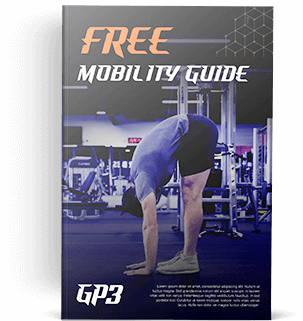Key Points:
- Expectations can create suffering and cause us to miss out on incredible opportunities.
- In romantic partnerships, the phrase, “You should just know,” embodies this concept. It’s toxic for happiness and relationship satisfaction.
- There are multiple reasons why we may expect our partner to read our mind and take it personally when they don’t. A few simple rules of thumb can help prevent this.
Estimated reading time: 5-10 minutes
Listen to this episode on Spotify!
A week ago, Tess and I celebrated our third wedding anniversary. And I feel comfortable making the bold claim that we have an objectively awesome anniversary date. 10/10/2020. I bring this up because I was originally going to title this piece, “Would I be Married Without Spirit Airlines?” and have it focus on how if I’d believed one particular stereotype, Tess and I probably wouldn’t have ended up together. But then I realized even I couldn’t stretch that concept into 1,500 words while remaining interesting and engaging for you, dear reader. So instead, today’s piece is about expectations, beliefs, and pre-judgments in relationships more broadly.
But let’s start with that Spirit Airlines story…
Tess and I met (well, matched on Tinder) in early December of 2017. I was visiting Phoenix for a good friend’s wedding when we connected via the app, and we had instantly amazing text message chemistry. She was funny, clever, interesting, and a joy to talk to. Extenuating circumstances meant we didn’t end up meeting while I was in town, but we kept messaging each other for a few weeks.
By January of 2018, I really wanted us to meet, so I arranged a trip to Phoenix, ostensibly to visit some friends, but really as an excuse to see Tess for the first time. At that stage in my life, I was transitioning between the desk job/corporate phase of my career and working in fitness full time, so finances were a bit tight. Luckily for me, Spirit Airlines was running a special, during which round trip tickets between Phoenix and Chicago were roughly $95.
At the time, that amount wouldn’t even cover a weekend of binge-drinking and less-than-optimal nutritional choices with my friends in downtown Chicago, so I thought, “Why not?” And in case you’re wondering, I was well-aware of Spirit Airlines’ less than stellar reputation. Listening to some of the horror stories, you’d think that flying with them was one of the worst travel experiences one could possibly have, so it would have been understandable if I’d taken that information together with the too-good-to-be-true low price, and thought, “Nah, I’m not gonna do this.”
Luckily, I took the plunge, bought the tickets, boarded the airplane and…it wasn’t that bad.
At all. The seats were a bit smaller and nobody came by to offer me a delicious bag of vacuum-sealed peanuts, but everything else was totally fine. It felt like flying in coach on just about any other airline. I didn’t understand what all the fuss was about, and I was glad I hadn’t let negative expectations deter me.
In Phoenix, when Tess and I met, we had a wonderful time. We shared a great dinner before she beat me in Mario Kart, and that was that. I knew I’d be back soon. Luckily, Spirit Airlines kept the same special running for months, so from early January until mid-March, I flew out to Phoenix every other weekend. Between that and nightly FaceTime sessions, our connection grew and deepened, and by the time Tess and I had finished a weekend trip to San Diego, we decided to “make things official” as boyfriend and girlfriend.
Three months later, I moved to Phoenix, (something I’d been considering due to my friend group but Tess gave me the courage to do) and we signed a lease together in June 2018. We got engaged in early 2019, and a year and a half after that, we were married. As I write this, we’ve been married for three years and together for over five and a half.
The point of all of this background information is that I could have missed out on marrying the love of my life if I had let preconceived notions about a budget airline company deter me from buying that initial ticket. Crazy, right?
While it might sound overly simple, this serves as an important reminder to be wary of expectations. And in relationships, one toxic phrase embodies unhealthy expectations.
“You should just know.”
Early on in our relationship, I told Tess a version of the following. “If there’s something you haven’t told me, but you think I should know it, I promise you, I don’t. It doesn’t matter if it seems so simple and so obvious that you could bash me over the head with it, I won’t know. After you tell me, I might even be embarrassed at how obvious whatever “it” was in hindsight, but I won’t know until you tell me.” I imagine this is something many men (and their partners) can relate to. I’ll admit it, we can be pretty clueless sometimes!
Anyway, Tess chuckled and accepted what I had to say, and put this knowledge into action soon after we moved in together. At the time, I was living off my savings while looking for an ideal gym and clients so I could officially start my personal training business. She was working full time as a middle school Latin teacher and Special Education coordinator, but school had ended for the summer, so we were able to spend lots of time together. Things were great!
But they changed a bit once she resumed working. After maybe the second or third day of the school year, followed by me greeting her with the energy of an exuberant young golden retriever when her work day was done, she communicated something clearly. She told me that she always felt quite drained after a long day of teaching, and that she needed a bit of time to herself after arriving home. She reassured me that it was nothing personal; she just needed some solitude to unwind and recharge.
This was perfectly reasonable, and I was more than happy to respect this request.
But let’s examine an alternate scenario.
Imagine Tess held the belief, “He should just know.” She could have thought to herself, “I’ve been teaching all day, dealing with kids, parents, coworkers, and bosses. I’m clearly exhausted and just need some alone time. How can he not see that?”
Let’s also imagine that from my perspective, the thought swirl could have gone something like, “She doesn’t seem excited to see me when she gets home. Is she having regrets? Is she second-guessing moving in together? Are we in trouble?”
But instead, because she had the courage to communicate her needs and didn’t expect me to read her mind, this was never a problem. In fact, it set a great precedent for our relationship, and I’m beyond grateful she handled the situation in this manner.
So, why do we believe, “They should just know?”
A fascinating study perfectly illustrates why this tendency to believe that others can read our minds arises. Here’s a paraphrased summary of it from the Harvard Business Review:
In 1990, a Stanford University psychology grad student named Elizabeth Newton conducted an experiment in which she assigned people to one of two roles: “tapper” or “listener.” Each tapper was asked to pick a well-known song, such as “Happy Birthday,” and tap out the melody on a table. The listener’s job was to guess the song.
Before the listeners guessed, Newton asked the tappers to predict the probability that listeners would guess correctly. They predicted 50%. The listener’s actual success ratio? A measly 2.5%. Why the massive discrepancy?
Well, when a tapper taps, it is impossible for them to avoid hearing the tune playing along to the taps. Meanwhile, all the listener can hear is a kind of bizarre Morse code. In spite of this, the tappers were flabbergasted by how hard the listeners had to work to pick up the tune.
The problem is that once we know something—say, the melody of a song—we find it hard to imagine not knowing it. We have difficulty sharing this “not-knowing” with others, because we can’t readily re-create their state of mind.
Makes sense, right? We can easily slip into this “assumption of knowing” with our romantic partners, and even take it further. We may assume that this lack of knowing means they just don’t care about our needs. And that stings. But it’s also wrong. Thoughts often are.
So, what do you do if you have said those unfortunate words, “You should just know,” to a romantic partner?
Well first, please cut yourself some slack. In addition to the natural bias demonstrated by the “melody tapping” study, we’re inundated with messages reinforcing a fairytale, romantic comedy version of love. We’re led to believe that “The One” will complete you, know exactly what you need without you having to express yourself, and effortlessly bring about pure relationship bliss and life satisfaction.
Deep down, we likely know this is all bull****, but it’s still easy to fall into the “You Should Just Know Trap.” When something appears downright obvious to us, the default state is to assume it must be equally obvious to our partner. Also, let’s be completely honest with ourselves and admit that expressing our needs, setting boundaries, and communicating emotions can feel scary. Doing so requires a level of trust and vulnerability that takes hard work to build as well as developing comfort with discomfort.
But, that’s part of the beauty of a relationship. You don’t need to do this work alone. You and your partner can help each other grow and improve. On that note, here are three handy rules of thumb to practice as you explore all of this together:
- Assume the best intentions of your partner.
- Catch your thoughts in the act of trying to convince you to take something personally.
- Apologize when you made a mistake, didn’t communicate clearly, or made a harmful assumption.
This way, you strongly decrease the likelihood that subtle resentments will grow between the two of you, either because you were expected to do something about which you were completely unaware, or unknowingly did the same thing to your partner. That’s no fun on either end, so why not take steps to avoid it? Unless of course, you’re both legitimate, telepathic mind-readers. In that case, sure. If they didn’t tell you what they needed, you should just know!
Before you go, I’d love to hear from you. Can you think of other ways expectations can create relationship problems? What other “rules of thumb” would you suggest for preventing this? Reply to this email and let me know!

